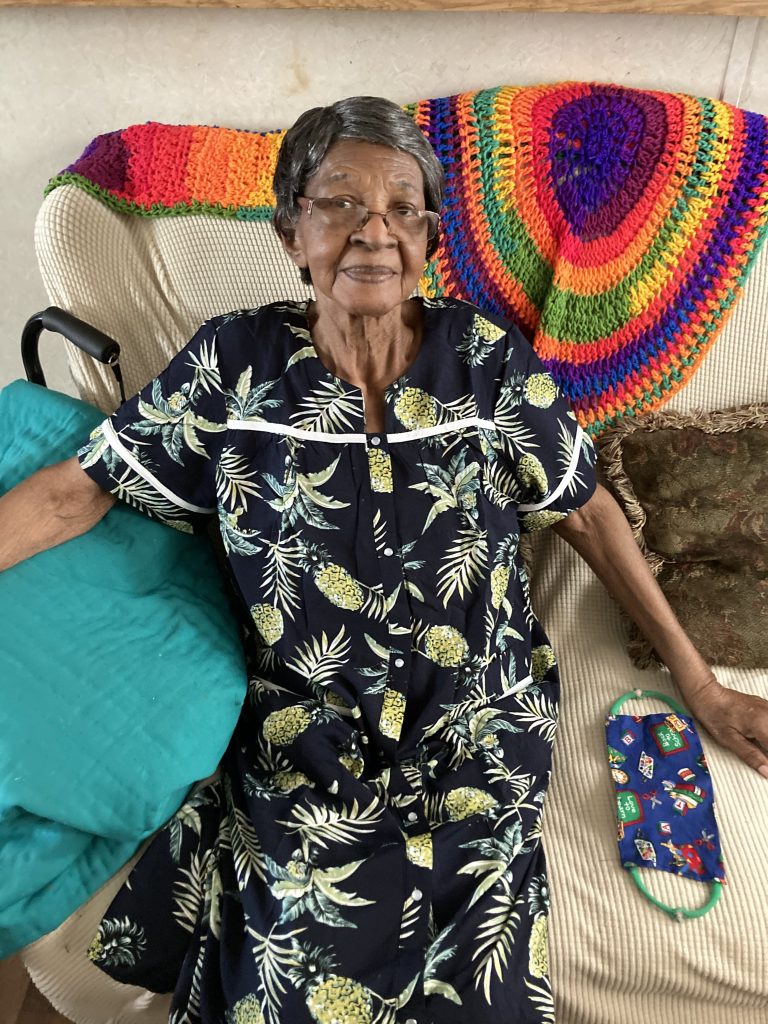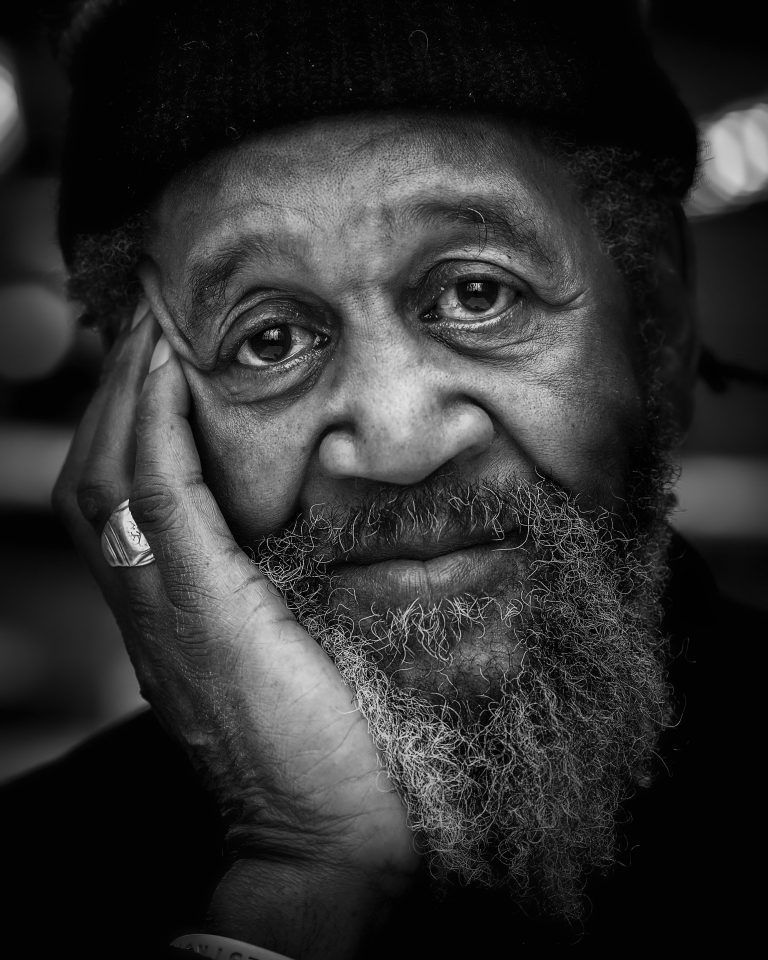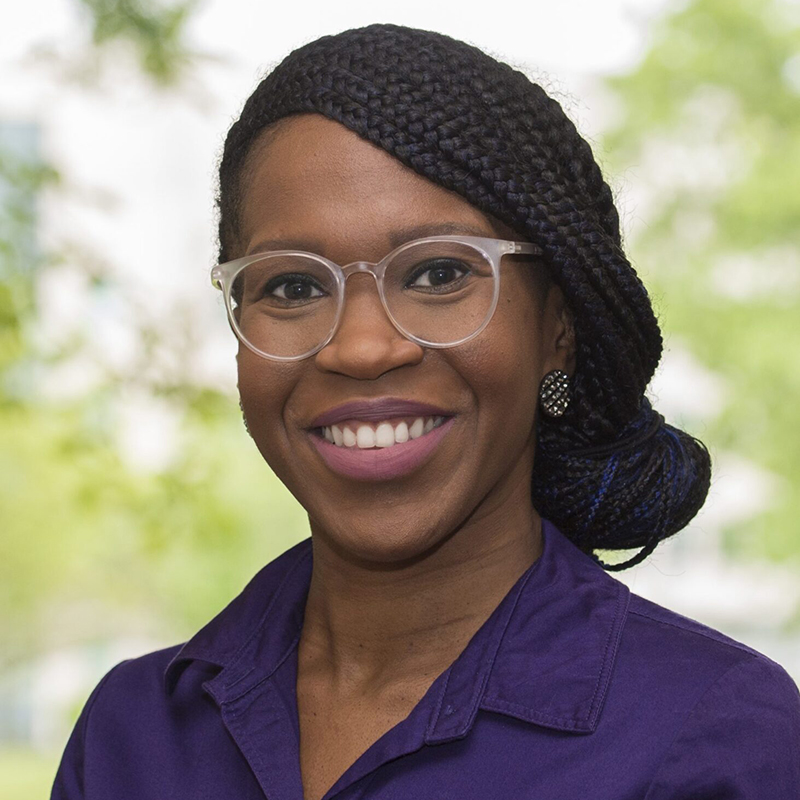
I wanted to share a personal story, which has shaped how I see the world, the care I provide as a clinician, and the research I conduct. My brother and I were raised by our maternal grandmother after the death of our mother in a motor vehicle accident. My brother was nine months old, and I was two years old. Despite this tragedy, I had a loving childhood filled with many beautiful memories, mainly in part because of my grandmother. She is my best friend, and the rock of our family. However, in watching her age, I discovered the importance of being a clinician and in advocating for her regarding healthcare decision making.
The most recent incident occurred over five years ago. My grandmother started to lose weight, which concerned me and my aunt (my grandmother’s only living child). Her primary care provider did not seem concerned, but I was able to advocate on her behalf. Since I lived in another state, I could not easily attend my grandmother’s visit. I created a care plan in a text message and sent it to my aunt to share with my grandmother’s provider. It worked! The primary care provider referred my grandmother to a specialist, a nutritionist, and prescribed home health with a physical therapist. My grandmother was diagnosed with osteoarthritis, which was preventing her from cooking and preparing meals as she did in the past.
This conversation and others like it prompted me to think about other Black American families, especially families of Black American persons living with Alzheimer’s disease and related dementias (referred to as dementia for the rest of the blog). How were these families navigating the healthcare system without a clinical background? I wondered what their caregiving experiences were like and how could my research improve their quality of life.
Quality of Life and Black American Persons living with Dementia

https://www.pexels.com/photo/man-in-black-shirt-in-grayscale-photo-35539/
Quality of life refers to a person’s well-being encompassing mental, physical, social function, and health perceptions.1 Much research has examined the quality of life experienced by persons living with dementia and their care partners.2,3 Within the general dementia research in the United States, spouse care partners of persons living with dementia experience significantly worse quality of life when compared to adult children care partners.3
However, when quality of life was examined only within Black American persons living with dementia and their care partners, my research identified Black American adult children experienced worse quality of life than spouse care partners.4
What is most concerning about this finding is that most Black American persons living with dementia are cared for by their adult children—predominantly adult daughters.5-7
With the anticipated increase in Black American older adults and their two-fold increased risk of developing dementia, there will be a greater number of adult daughter care partners. So how do we support Black American adult daughters in navigating the healthcare system for their Black American parent living with dementia?
Healthcare Decision Making for Black American Persons Living with Dementia
Healthcare services are essential to the treatment and management of persons living with dementia.8 Yet Black American persons living with dementia experience low rates of healthcare service use,8,9 inequalities in care provided,5,8,10 and undertreatment of dementia symptoms,10,11 which result in worse health outcomes12 and worse quality of life for Black American persons living with dementia.5,10,13,14 Since there is no cure for dementia, most medications are given earlier in the dementia trajectory to improve cognitive symptoms but these effects vary by person.5 Black Americans, however, often exhaust all family resources before seeking healthcare services,7 which is misaligned with how treatment of dementia is currently intended. The hesitation of Black American care partners to seek healthcare services seems to be linked to distrust in the healthcare system.15,16 From slavery and beyond, Black Americans were used in medical procedures and research without consent or explicit explanation of the procedures.16 In a recent report from the Alzheimer’s Association, 50% of Black Americans reported experiencing discrimination as a barrier to dementia care.5 While these outcomes are concerning, there are strategies in dementia care and research to minimize these negative health outcomes and experiences in healthcare.
Black American Cultural Norms in Healthcare Decision Making

https://www.pexels.com/photo/crop-doctor-with-stethoscope-preparing-for-surgery-in-hospital-3825586/
The disparity in research that explicitly focuses on examining Black American persons living with dementia creates a gap in our understanding of how caregiving occurs for these older adults. One strategy I am using in my research regarding dementia care is to include Black American cultural norms. For example, Black American older adults are often respected in their families so I have incorporated Black American persons living with dementia in my research studies to gain their insights. One recent finding is that Black American persons living with dementia have a more active role in healthcare decisions than previously identified in dementia research17. In addition, Black Americans tend to have more collectivist values with caregiving including other family members and friends in these decisions. As a result, including Black American persons living with dementia and their Black American care partners through a dyadic approach to analysis in research may hold promise in supporting these families as they navigate the healthcare system. Dyadic analysis, the inclusion of research data from pairs (i.e., the person living with dementia and the care partner), allows for a better understanding of the communication between two people, such as the role each person plays in the decision-making process. This examination includes interviewing both pairs together and/or individually or having the pairs answer survey questions, which allows for the inclusion of both voices in the research.
As we continue to support person-centered care, I am hopeful we can incorporate more Black American cultural norms, dyadic and family analysis in research and dyadic and family interactions in healthcare service delivery to improve their quality of life. With every research study I conduct, I am reminded of my grandmother and the desire to improve the quality of life of other grandmothers and older adults in the Black American communities we serve.

Kalisha Bonds Johnson is a researcher at Emory University. Her research focuses on developing strategies to improve the quality of life of African American persons living with Alzheimer’s disease and related dementias and their African American caregivers and families. Specifically, she is considering how daily care and healthcare decisions are made and how these decisions influence their quality of life.
Resources
- Ware JE, Jr., Sherbourne CD. The MOS 36-item short-form health survey (SF-36). I. Conceptual framework and item selection. PharmacoEconomics. 1992;2(2):473-483.
- Conde-Sala JL, Garre-Olmo J, Turro-Garriga O, Vilalta-Franch J, Lopez-Pousa S. Quality of life of patients with Alzheimer’s disease: differential perceptions between spouse and adult child caregivers. Dementia and geriatric cognitive disorders. 2010;29(2):97-108.
- Pinquart M, Sorensen S. Spouses, adult children, and children-in-law as caregivers of older adults: a meta-analytic comparison. Psychology and aging. 2011;26(1):1-14.
- Bonds K, Whitlatch CJ, Song M, Lyons KS. Factors influencing quality of life in African-American dementia dyads. Aging & Mental Health. 2020:1-8.
- Alzheimer’s Association. 2021 Alzheimer’s disease facts and figures. Alzheimer’s & Dementia. 2021;17(3):327-406.
- Dilworth-Anderson P, Williams SW, Cooper T. Family caregiving to elderly African Americans: caregiver types and structures. J Gerontol B Psychol Sci Soc Sci. 1999;54(4):S237-241.
- Potter EC, Roberto KA, Brossoie N, Blieszner R. Decisions, Decisions. Res Aging. 2017;39(4):476-500.
- Dilworth-Anderson P, Pierre G, Hilliard TS. Social Justice, Health Disparities, and Culture in the Care of the Elderly. Journal of Law, Medicine and Ethics. 2012;40(1):26-32.
- Dilworth-Anderson P, Williams IC, Gibson BE. Issues of race, ethnicity, and culture in caregiving research: a 20-year review (1980-2000). Gerontologist. 2002;42(2):237-272.
- Chin AL, Negash S, Hamilton R. Diversity and disparity in dementia: the impact of ethnoracial differences in Alzheimer disease. Alzheimer disease and associated disorders. 2011;25(3):187-195.
- Zuckerman IH, Ryder PT, Simoni-Wastila L, et al. Racial and ethnic disparities in the treatment of dementia among Medicare beneficiaries. J Gerontol B Psychol Sci Soc Sci. 2008;63(5):S328-333.
- Husaini BA, Sherkat DE, Moonis M, Levine R, Holzer C, Cain VA. Racial differences in the diagnosis of dementia and in its effects on the use and costs of health care services. Psychiatric Services. 2003;54(1):92-96.
- Dubois B, Padovani A, Scheltens P, Rossi A, Dell’Agnello G. Timely diagnosis for Alzheimer’s disease: A literature review on benefits and challenges. Journal of Alzheimer’s disease : JAD. 2016;49(3):617-631.
- Hinton L, Franz C, Friend J. Pathways to dementia diagnosis: evidence for cross-ethnic differences. Alzheimer disease and associated disorders. 2004;18(3):134-144.
- Institute of Medicine. Unequal Treatment: Confronting Racial and Ethnic Disparities in Health Care. Washington, DC: The National Academies Press; 2003.
- Washington HA. Medical apartheid : the dark history of medical experimentation on Black Americans from colonial times to the present. New York: Doubleday; 2006.
- Bonds Johnson, K., Epps, F., Song, M., Lyons, K. S., Driessnack, M. (in press). Using poetry as data to explore daily and formal care decision making within African American dementia dyads. Geriatric Nursing.




